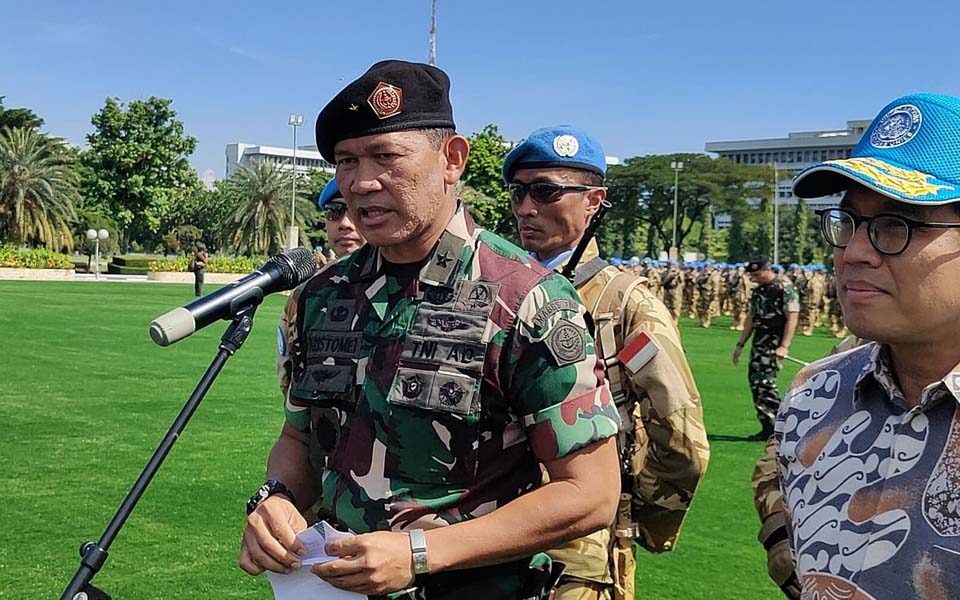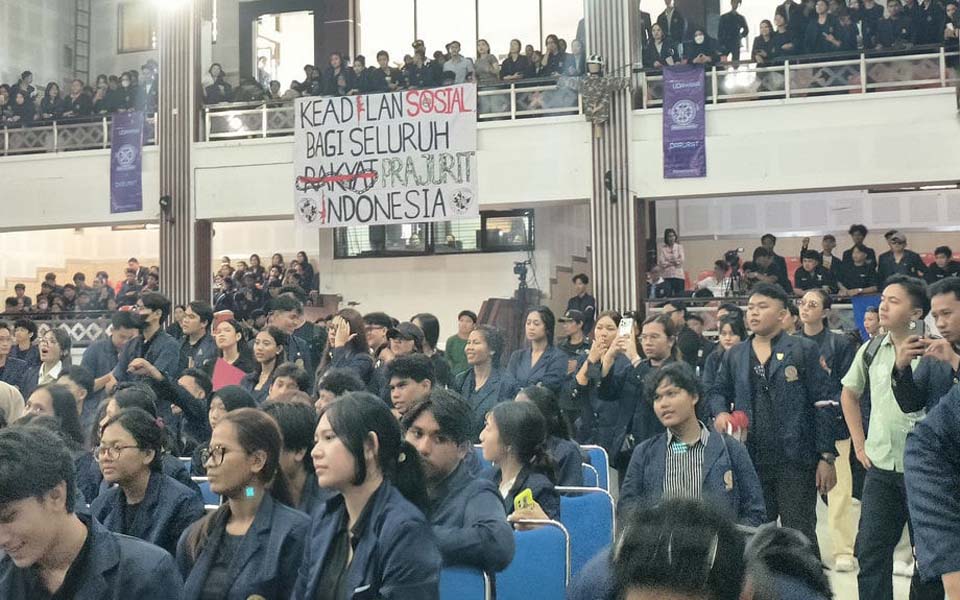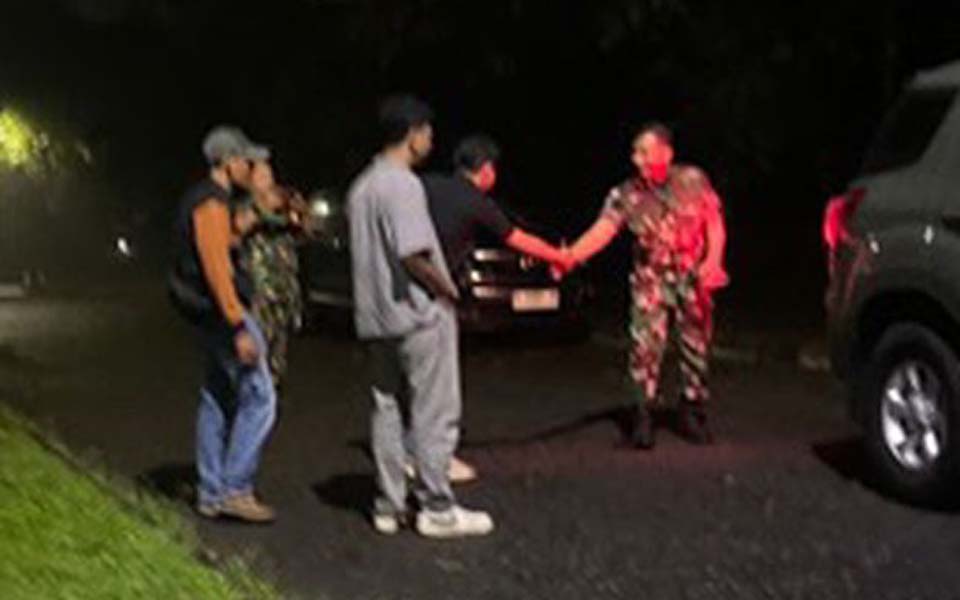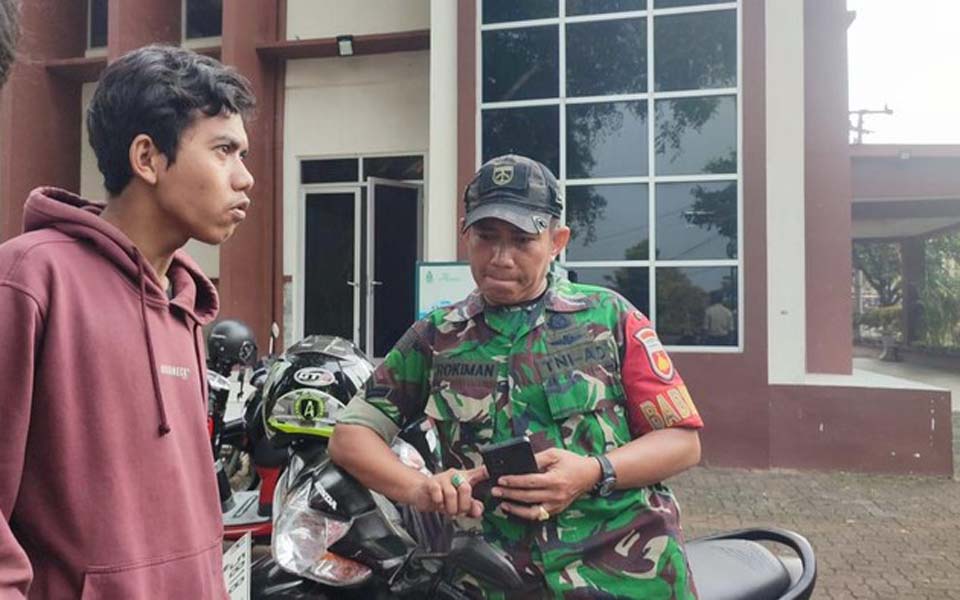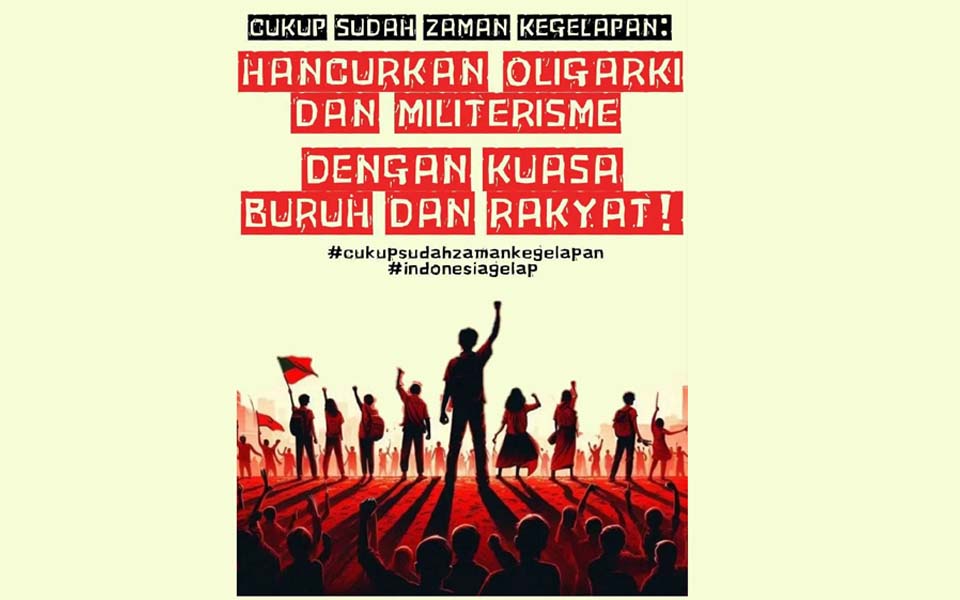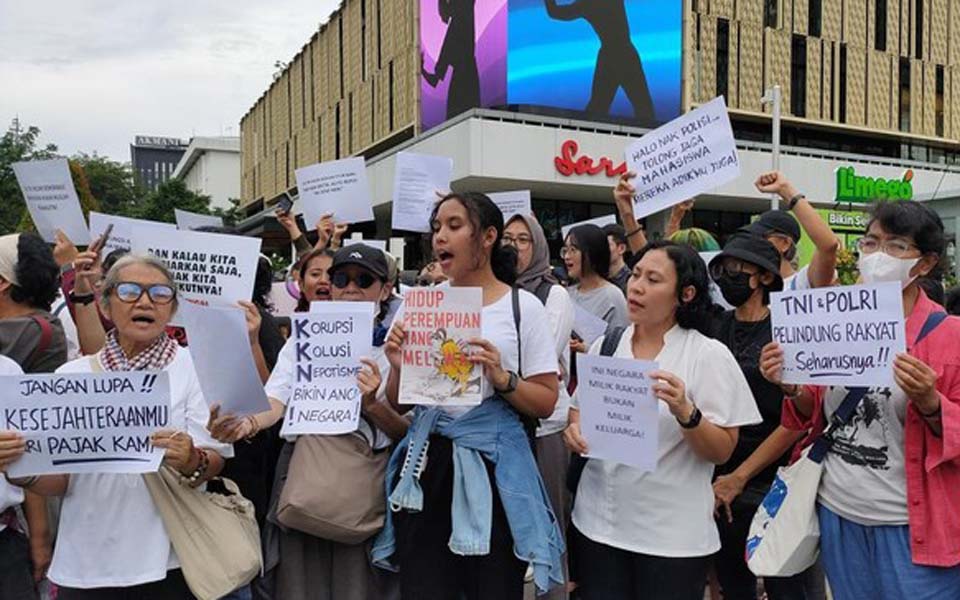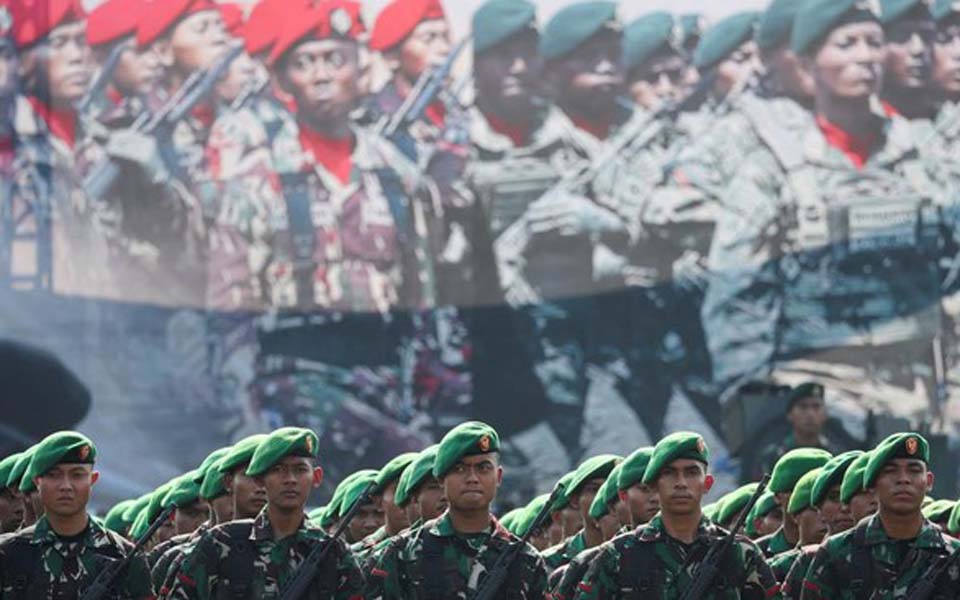Luhur Hertanto, Jakarta – Anti-military demonstrations dogged [former armed forces chief] Wiranto and Gus Solah [National Human Rights Commission member Solahuddin Wahid] as they left the National Election Commission (KPU) after registering as Golkar Party presidential and vice-presidential candidates on Tuesday May 11.
Although they could hear the shouts, Wiranto and Gus Solah appeared unconcerned. After registering themselves they went directly to their car and left the KPU offices on Jalan Imam Bonjol in Central Jakarta.
A number of posters adorned the demonstration such as “Don’t let the military return to power” and “The military has failed to lead the nation”.
The action which began at 2pm was still continuing at 3.30pm with demonstrators sitting on the KPU’s fence and blocking half of the road in the direction of the Hotel Indonesia roundabout causing a traffic jam.
The demonstrators were from three different groups including the Trisakti Student’s Association, the Underground Student Community (Komunitas Mahasiswa Bawah Tanah, Kombat) and the Independent National Student Movement and totaled around 300 people.
They arrived in separate waves and but did not come together as one gorup. They demanded that the KPU refuse to accept presidential and vice-presidential candidates from the military. This was because SBY [former coordinating minister for politics and security Susilo Bambang Yudhoyono] and Wiranto do not have a good track record on upholding human rights. Both of them have been involved in cases of human rights violations.
Retired General Wiranto is suspected of being the brains behind the vocations in East Timor and Trisakti1 while retired General SBY is suspected to have know about and allowed the May 27 attack on the Indonesian Democratic Party headquarters to go ahead2.
The demonstrators said therefore that there is absolutely no guarantee that if a military figure is elected as president their government will uphold the principles of human rights. (sss)
Notes:
1. On May 12, 1998, security personnel shot into a crowd of student protesters from the Trisakti University near their campus in West Jakarta, killing four students and injuring several. This proved to be the spark which set-off three days of mass demonstrations and rioting in Jakarta which eventually lead to the overthrow of Suharto.
2. Following weeks of protests at the Indonesian Democratic Party (PDI) headquarters in Central Jakarta by pro-Megawati PDI supporters after the Suharto regime engineered Megawati’s removal as the party’s democratically elected chairperson, on July 27, 1966, paid thugs backed by the military attacked and destroyed the PDI offices resulting in the death of as many as 50 people. Popular outrage at the attack sparked several days of mass rioting and violent clashes with police. Many had hoped that with Megawati’s ascendancy to the presidency those responsible would be held accountable however Megawati and other leading party figures have publicly distanced themselves (refusing to attend annual commemorations) from the issue. Those who were eventually brought to trial in late 2003 have all been low ranking soldiers or civilians and have either been acquitted for lack of evidence or given light sentences. None of those believed to have organised or led the attack have been brought to trial.
[Translated by James Balowski.]






